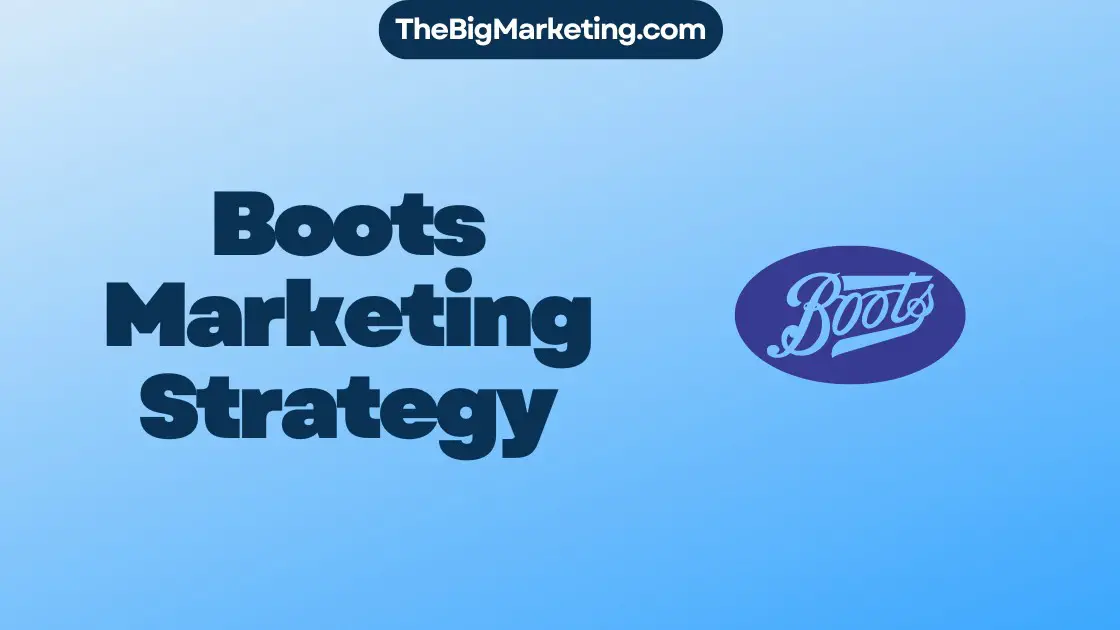D2C marketing, or Direct-to-Consumer marketing, is a business approach that enables brands to sell their products or services directly to consumers, eliminating the need for intermediaries. This model gives eCommerce brands greater control over various aspects of their business, including brand messaging, product offerings, pricing strategies, customer data, marketing and sales tactics, inventory management, logistical decisions, and business policies.
To successfully implement D2C marketing, eCommerce brands rely on key elements such as a well-optimized eCommerce website, active presence on social media platforms, mobile apps, and the collection of valuable customer data.
Key Takeaways:
- D2C marketing enables brands to sell products or services directly to consumers, bypassing intermediaries.
- It provides eCommerce brands with greater control over their business, including branding, product offerings, pricing, customer data, marketing, inventory, and logistics.
- An optimized eCommerce website, active presence on social media, and mobile apps are crucial components of a successful D2C marketing strategy.
- Collecting and leveraging customer data is essential for personalization, targeted marketing, and improved decision-making.
- Examples of successful D2C brands include Casper, Glossier, Dollar Shave Club, Hello Fresh, and Unilever.
Top 5 Advantages of D2C Marketing
Adopting a D2C approach provides eCommerce brands with several benefits. Let’s explore the top 5 advantages of D2C marketing:
1. Increased Control
A key advantage of D2C marketing is the increased control it gives brands over various aspects of their business. By eliminating intermediaries, brands have full control over their brand message, products or services, pricing strategy, customer data, marketing and sales strategies, inventory, logistical decisions, and business policies. This control allows brands to tailor their offerings to meet the specific needs and preferences of their target audience, resulting in a more personalized and engaging customer experience.
2. Access to Valuable Customer Data
Another major benefit of a D2C model is the ability to gather a vast amount of customer data. By directly interacting with customers through their eCommerce websites, brands can collect valuable data on customer preferences, behaviors, and buying patterns. This data can be leveraged to personalize marketing campaigns, improve customer segmentation and targeting, enhance customer retention strategies, and reduce customer acquisition costs. With customer data at their fingertips, brands can make data-driven decisions that lead to greater business success.
3. Strengthened Customer Relationships
A D2C approach allows brands to build stronger relationships with their customers. By engaging directly with customers through various touchpoints such as social media, email marketing, and customer support channels, brands can establish a direct line of communication and foster a sense of trust and loyalty. This direct interaction also enables brands to gather feedback, address customer concerns promptly, and create a more personalized and tailored customer experience. Stronger customer relationships lead to increased customer satisfaction, loyalty, and advocacy.
4. Opportunities for Expansion
D2C marketing provides eCommerce brands with opportunities for expansion into new markets and product offerings. By having full control over their business, brands can easily test new products, explore new market segments, and adapt their offerings based on customer feedback and market trends. This flexibility and agility empower brands to seize emerging opportunities and stay ahead of their competition. Additionally, brands can leverage their direct relationships with customers to introduce new products or services, leading to increased sales and business growth.
5. Increased Revenues
Ultimately, the adoption of a D2C marketing strategy can result in increased revenues for eCommerce brands. By eliminating intermediaries and selling directly to customers, brands can capture a larger share of the profit margin. This allows for more competitive pricing strategies, increased upselling and cross-selling opportunities, and reduced distribution costs. Additionally, the ability to personalize marketing efforts and target the right customers with the right offerings increases the likelihood of conversion and repeat purchases, further contributing to revenue growth.
By harnessing the power of D2C marketing, eCommerce brands can enjoy increased control, access to valuable customer data, strengthened customer relationships, opportunities for expansion, and increased revenues. These advantages make D2C marketing an attractive strategy for brands looking to optimize their online presence and drive business success.
The Best D2C Marketing Strategies
To ensure the success of a D2C business model, eCommerce brands should implement effective marketing strategies. These strategies include:
- Thorough Market Research: Conducting comprehensive market research is essential for understanding customers’ problems, needs, and preferences. It helps eCommerce brands identify opportunities and competitors, enabling them to develop targeted marketing campaigns and stand out in the market.
- Diversifying Marketing Techniques: Utilizing a variety of marketing techniques such as content marketing, social media advertising, influencer marketing, and email marketing can help reach target customers through different channels. By diversifying their marketing efforts, eCommerce brands can increase brand recognition and expand their customer base.
- Adopting an Omnichannel Approach: An omnichannel approach involves integrating various online and offline channels to provide a seamless and consistent customer experience. This strategy ensures that eCommerce brands can reach customers through multiple touchpoints, including websites, social media platforms, mobile apps, and physical stores.
- Embracing Social Proof: Social proof, such as customer reviews, testimonials, and user-generated content, is a powerful marketing strategy for building trust and credibility. Incorporating social proof into marketing campaigns helps create a positive perception of the brand and encourages potential customers to make a purchase.
- Focusing on Successful Lead Generation: Developing effective lead generation strategies is crucial for attracting potential customers and converting them into paying customers. eCommerce brands can utilize tactics such as lead magnets, gated content, and email opt-ins to capture valuable leads and nurture them through targeted marketing campaigns.
- Collaborating with Customers: Engaging and collaborating with customers is essential for building strong relationships and increasing customer loyalty. eCommerce brands can actively seek feedback, involve customers in product development decisions, and create exclusive customer communities to foster a sense of belonging and brand advocacy.
By implementing these D2C marketing strategies, eCommerce brands can maximize their success in the online marketplace, connect with their target audience, and drive sustainable business growth.
| Strategy | Description |
|---|---|
| Thorough Market Research | Conduct comprehensive market research to understand customers’ problems, needs, and preferences. Identify opportunities and competitors. |
| Diversifying Marketing Techniques | Utilize various marketing techniques such as content marketing, social media advertising, influencer marketing, and email marketing. |
| Adopting an Omnichannel Approach | Integrate online and offline channels to provide a seamless customer experience across multiple touchpoints. |
| Embracing Social Proof | Incorporate customer reviews, testimonials, and user-generated content to build trust and credibility. |
| Focusing on Successful Lead Generation | Develop effective lead generation strategies to capture and nurture valuable leads. |
| Collaborating with Customers | Engage customers, seek feedback, involve them in product development decisions, and create exclusive customer communities. |
E-Commerce Website
The e-commerce website plays a pivotal role in D2C marketing, serving as the primary channel for D2C brands to interact directly with their customers and facilitate the sale of products or services. For businesses looking to effectively adopt a D2C marketing approach, investing in their e-commerce websites is essential.
Creating a secure and user-friendly website is paramount to provide a seamless browsing and purchasing experience for customers. It is crucial to optimize the website’s navigation, ensuring that visitors can easily find the products they are searching for. Implementing intuitive and mobile-friendly design elements allows customers to access the website from various devices, enhancing their overall shopping experience.
The e-commerce website should not only focus on functionality but also showcase the brand’s unique identity, values, and product offerings. By employing compelling web design and incorporating visually appealing elements, a D2C brand can effectively communicate their brand story, create a personalized connection, and engage customers on an emotional level.
An optimized e-commerce website serves as the backbone of a successful D2C marketing strategy. It allows brands to establish a direct line of communication with customers, effectively convey their brand messaging, and directly sell their products or services, all while collecting valuable customer data for improved personalization and targeted marketing campaigns.
Social Media Platforms
Social media platforms are an integral part of a successful D2C marketing strategy. With their vast user bases and extensive features, these platforms provide eCommerce brands with invaluable opportunities to engage with customers, promote their products or services, and build brand awareness.
One of the main advantages of leveraging social media platforms in D2C marketing is the ability to directly interact with customers. This direct communication channel allows brands to address customer inquiries, provide support, and create a personalized experience. By actively engaging with their audience, D2C brands can foster a sense of community and establish long-lasting relationships.
Moreover, social media platforms offer robust advertising options that enable eCommerce brands to reach their target audience effectively. By understanding the demographics and interests of their ideal customers, brands can create highly targeted advertisements that drive traffic to their eCommerce websites. This targeted approach helps maximize ROI and increase conversions.
Several popular social media platforms are particularly well-suited for D2C marketing:
Facebook remains one of the most popular and influential social media platforms. With billions of active users, it presents a massive opportunity for eCommerce brands to connect with their target audience. Brands can create dedicated business pages, establish a strong brand presence, share engaging content, run targeted advertisements, and even sell products directly on the platform through integrated shopping features.
Instagram is a visual-centric platform that works particularly well for eCommerce brands looking to showcase their products or services. Through captivating imagery, brands can inspire and engage their audience while highlighting the unique features and benefits of their offerings. Instagram’s shopping features allow brands to tag products in their posts and stories, linking directly to their eCommerce website for seamless purchasing experiences.
Twitter offers a fast-paced and real-time platform for brands to connect with customers. Through concise and engaging tweets, eCommerce brands can share updates, promotions, and interact with their followers. Brands can also leverage Twitter’s advertising capabilities to increase their reach and engagement.
While Facebook, Instagram, and Twitter are popular choices for D2C marketing, it’s crucial for brands to research and understand which platforms align best with their target audience and business objectives. Each platform has its unique user demographics and features, and an effective D2C marketing strategy should leverage the right mix of platforms to maximize results.
In conclusion, social media platforms play a vital role in the success of D2C marketing by enabling direct customer interaction, targeted advertising opportunities, and enhanced brand visibility. By effectively leveraging platforms such as Facebook, Instagram, and Twitter, eCommerce brands can connect with their target audience, build brand awareness, and drive sales. The integration of a robust social media marketing strategy is essential for D2C brands seeking to thrive in the competitive eCommerce landscape.
Mobile Apps
In addition to an eCommerce website and social media platforms, mobile apps play a crucial role in D2C marketing. With the increasing popularity of mobile commerce, investing in a mobile application can provide D2C brands with additional opportunities for customer engagement, sales, and brand loyalty.
A well-designed and user-friendly mobile app allows customers to conveniently browse and shop for products or services, right at their fingertips. It provides a seamless and personalized shopping experience by leveraging features such as push notifications, personalized recommendations, and easy checkout processes.
Mobile apps also allow D2C brands to directly communicate with their customers through in-app messaging, chatbots, or customer support features. This direct interaction builds trust, enhances brand loyalty, and enables brands to address customer queries or concerns promptly.
Furthermore, mobile apps enable D2C brands to leverage smartphone functionalities such as GPS, camera, and microphone to enhance the overall user experience. For example, brands can utilize location-based targeting to send personalized offers or recommendations based on a customer’s location.
By developing a mobile app that complements their eCommerce website, D2C brands can establish a strong presence in the mobile space and create a cohesive online shopping experience for their customers.
Consumer Data
Interacting directly with consumers is a key aspect of D2C marketing. To truly understand customers and meet their needs, D2C brands must gather valuable consumer data. This data provides crucial insights into customer preferences, behaviors, and buying patterns. By investing in the generation and analysis of consumer data, D2C brands are able to personalize their offerings, improve customer segmentation, execute targeted marketing campaigns, increase customer retention, and make informed business decisions.
Collecting and leveraging consumer data is a fundamental element of successful D2C marketing. It allows brands to tailor their products and messaging to specific customer segments, ensuring a personalized and relevant experience. With the wealth of data at their disposal, D2C brands can optimize their marketing efforts, identify new business opportunities, and continuously improve customer satisfaction.
Let’s take a closer look at the types of consumer data that D2C brands can collect:
1. Demographic Data
Demographic data provides essential information about customers’ age, gender, location, income level, and other relevant characteristics. This data helps D2C brands understand their target audience and tailor their marketing strategies accordingly. For example, an apparel brand targeting young adults can use demographic data to develop marketing campaigns that resonate with this specific demographic, leading to higher engagement and conversion rates.
2. Behavioral Data
Behavioral data tracks customers’ actions and interactions with a brand. It includes data such as purchase history, browsing patterns, click-through rates, and engagement metrics. Analyzing behavioral data allows D2C brands to understand customer preferences and anticipate their future needs. For instance, an online grocery store can use behavioral data to recommend personalized product suggestions based on a customer’s previous purchases or browsing history.
3. Customer Feedback and Reviews
Customer feedback and reviews provide valuable insight into customer satisfaction, product preferences, and areas for improvement. By analyzing this data, D2C brands can identify trends, address customer pain points, and continuously enhance their products or services. Utilizing customer feedback also demonstrates a brand’s commitment to listening and responding to customer needs, fostering trust and loyalty.
4. Social Media Engagement
Social media platforms offer a wealth of data on customer engagement and sentiment. Monitoring social media interactions and mentions can provide D2C brands with real-time feedback on their products or services, identify brand advocates, and detect potential issues or opportunities. Social media listening tools enable brands to track conversations, engage with customers, and gain valuable insights into their target audience.
5. Email and CRM Data
Email marketing campaigns and customer relationship management (CRM) systems provide another avenue for gathering consumer data. D2C brands can track open rates, click-through rates, and purchase behavior in their email campaigns. Integration with CRM systems allows brands to build comprehensive customer profiles, enabling targeted marketing and personalized messaging.
Examples of eCommerce Businesses Adopting D2C Marketing
Many eCommerce brands have successfully embraced the D2C marketing model, revolutionizing how they interact with customers and drive sales. Let’s explore some notable examples:
Casper
Casper, a well-known mattress company, has built a strong D2C brand by prioritizing personalization and direct customer engagement. Their eCommerce website offers a seamless shopping experience, allowing customers to customize the mattress based on their preferences. Casper’s success story showcases the power of D2C marketing in disrupting traditional industries.
Glossier
Glossier, a beauty brand, has gained a loyal customer base by focusing on direct interaction with their target audience. They leverage social media platforms to foster a community and involve customers in product development. Glossier’s approach highlights the significance of customer engagement in D2C marketing strategies.
Dollar Shave Club
Dollar Shave Club has redefined the shaving industry through its D2C marketing strategy. By offering subscription-based razor delivery services directly to consumers, they have disrupted traditional retail channels. Dollar Shave Club’s success demonstrates how D2C marketing can be advantageous in highly competitive markets.
Hello Fresh
Hello Fresh has revolutionized the meal kit industry with its D2C approach. By eliminating the need for intermediaries, they deliver fresh ingredients and recipes directly to customers’ doorsteps. Hello Fresh’s success story showcases how D2C marketing can create convenience and cater to customers’ demand for quality food at home.
Unilever
Unilever is a multinational consumer goods company that has leveraged D2C marketing to complement its traditional distribution channels. Through their D2C brand AllThingsHair, Unilever engages directly with customers, offering personalized haircare advice and promoting their products. Unilever’s strategic adoption of D2C marketing illustrates the potential for established brands to tap into this model for targeted customer engagement and increased sales.
These examples underscore the immense potential and success of D2C marketing in various sectors. By embracing direct interactions with customers and focusing on personalization, engagement, and disruptive strategies, eCommerce brands can leverage D2C marketing to drive growth and build lasting relationships with their target audience.
Conclusion
In conclusion, D2C marketing (direct-to-consumer marketing) presents significant benefits for eCommerce brands by providing them with the opportunity to eliminate intermediaries and directly interact with their customers. This approach allows brands to have enhanced control over various aspects of their business, including brand messaging, product offerings, pricing strategies, customer data, marketing and sales strategies, inventory management, and business policies.
One of the key advantages of D2C marketing is the access to a vast amount of customer data, which can be used to personalize offerings, improve customer segmentation, and implement targeted marketing campaigns. By leveraging this data, eCommerce brands can strengthen relationships with their customers, customize the customer experience, and increase customer retention.
To successfully leverage the D2C business model, eCommerce brands should implement effective marketing strategies. This includes conducting thorough market research to understand customer needs and preferences, diversifying marketing techniques, embracing social proof, and collaborating with customers. By following these strategies, eCommerce brands can achieve their marketing goals, including increased brand recognition, expansion opportunities, and higher revenues.
In conclusion, D2C marketing provides eCommerce brands with the means to establish direct connections with customers, gain control over their business, and leverage customer data for personalized marketing strategies. By adopting this approach and implementing effective marketing strategies, eCommerce brands can position themselves for success in the competitive digital landscape.







